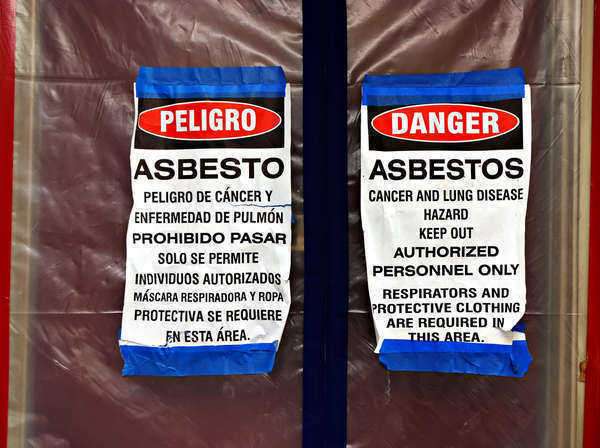
You will typically need a Maryland asbestos lawyer when dealing with this sort of litigations within the state. For these cases, the lawyers have been able to prove that employers and the government were aware of the dangers of asbestos but did not act quickly enough to ban it or inform employees of the potential dangers to their health. Asbestos litigation is complicated as the party to be sued may be located in another jurisdiction than the plaintiff or there are laws regarding the statute of limitations for this case. There is a limited amount of time to file suit after discovering an asbestos-related illness.
What to tell your attorney
Finding a defendant can be the most difficult part of the process. The Maryland asbestos lawyer will be able to help you determine the source of the exposure using and evidence you provide. If you are dealing with a defendant that has their headquarters or operations in Maryland, then you will surely need a Maryland asbestos lawyer. In order to file suit for asbestos related damages, one must have an illness caused by asbestos exposure. Without an actual illness due to exposure, the case may not proceed. You cannot collect damages for future illnesses you expect to develop as a result of exposure.
If you are part of a group of injured persons, then you may currently or have been part of a class action lawsuit that sought redress collectively. If there was been an award or settlement, you may not bring an individual suit against the other party. If you have waived you right to participate in the class action suit, then an individual lawsuit may proceed as normal. Failure to waive the right to participate in the class action suit makes you part of the suit by default.
How do I prepare for my appointment?
You and your Maryland asbestos lawyer will work to determine a strategy for court and possible settlement meetings. You will need a benchmark of how much damages you will seek. Certain damages, such as punitive damages for wanton and reckless behavior is at the discretion of the judge.
You must gather all documents related to your exposure. For instance, if you were exposed to asbestos while working in construction, bring any and all proof you have of your employment including pay records and contracts. If you accrued medical expenses as a result of asbestos exposure, you should bring documents related to your hospitalization, especially the medical bills as this can help the Maryland asbestos lawyer determine the amount of the award or settlement.
Family members may file suit for individuals that are deceased. Ensure to gather the relevant documentation. The lawyer will be able to determine if the case is within the statute of limitations.
Where to look for an attorney
There are drawbacks to using big and prominent asbestos law firms that serve the entire country. For one, you may not be able to meet your legal representation face-to-face, which will diminish your ability to ask questions and have your concerns addressed. They may also try to expedite a settlement without going to trial to complete your case as they will have many clients and the costs of them having the lawyer travel with continue to add up. This may deny you of your right to seek redress in court and receive the maximum possible settlement including possible punitive damages to be awarded in court.
The Maryland courts system maintains a referral service to advise individuals and refer them to a proper legal representative. A fee of $35 may be involved, but this can by bypasses by filling out and having a waiver approved. Other referral services will direct you to state and local law associations, depending on the county.
You may use this website to find an attorney. To do so, use the search box on top of all pages. You may also compare attorneys and ask free questions by clicking Find Attorneys on top of the page.
Evaluating Experience & Education
Remember that advertising and name recognition are not always hallmarks of good lawyers and should never be used when evaluating an attorney. When evaluating a Maryland asbestos lawyer, look for such credentials as admission to the bar and membership in the Maryland State Bar Association. This membership is not mandatory, but useful for vetting a lawyer that suits your needs.
Personality and Values
Communication is also key to maintaining a solid client-retainer relationship especially in cases where the firm is far away and/or working in another jurisdiction. You may have to travel to testify even if the firm is willing to travel to meet with you. Especially when dealing with a large law firm, if an attorney makes it difficult to talk or meet with him, you may want to reconsider your decision as a lack of communication may jeopardize your settlement or award.
Rates, Fees & Retainers
There are various fees that are accrued when consulting and retaining a lawyer. It is important to be aware of these fees. Hourly rates are rare in asbestos litigation, but still possible. You should be able to get all fees in writing from a reputable attorney. Some fees may not be applicable in class action lawsuits.
A contingency fee is a percentage of the award that the asbestos lawyer is entitled to claim if they win the case and this is agreed upon by the lawyer and client. Nearly all asbestos lawyers accept cases on this basis and the fee can range from 25-50% of the award with adjustments for settling out of court. Other factors may include the costs of expert witnesses and services rendered. These fees are generally non-negotiable with the lawyer unless regulated by law or accompanying a case with the possibility of a substantial award.
A retainer fee is a non-refundable advance payment by the client that covers the cost of services provided by the lawyer. The retainer account is billed for services provided and will be refilled at the discretion of the Maryland asbestos lawyer. This is a rare arrangement.
If you cannot afford a lawyer, you may be able to find a firm that will work pro bono or on a payment plan. Most asbestos lawyers work by contingency.
Interviewing your attorney
The following questions are important when interviewing your attorney:
What fees do I pay for retaining your services?
Can I have that in writing?
Will I have to testify or travel?
Has there been a class action suit related to my circumstances?
What percentage of the award will you collect?
Can I contact you directly if there is a problem?
Will you allow me to examine your credentials?
What is your experience with asbestos litigation?
If you cannot handle my case, can you refer me to a lawyer that can?








